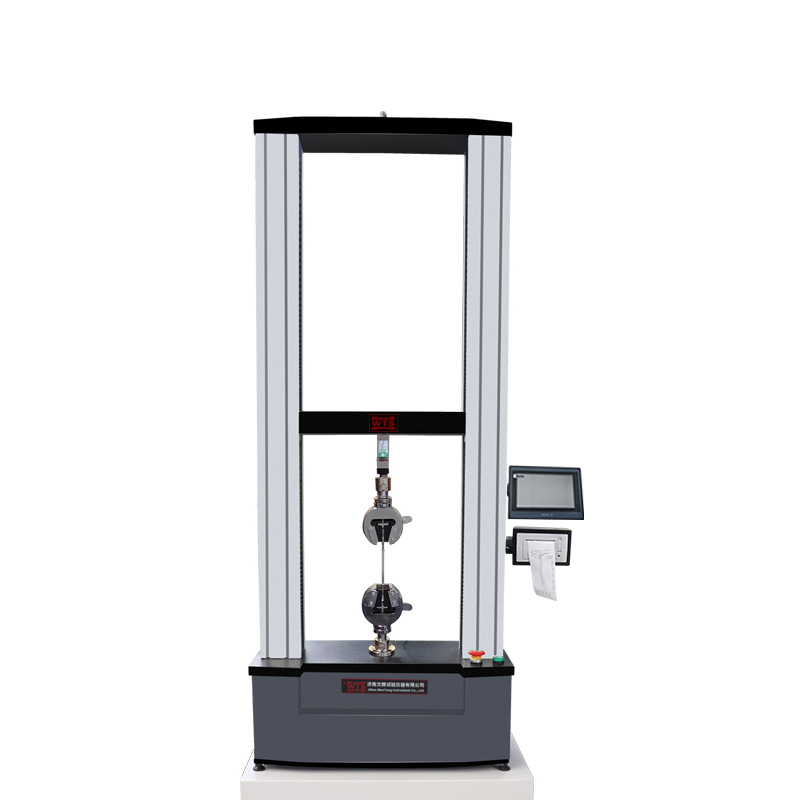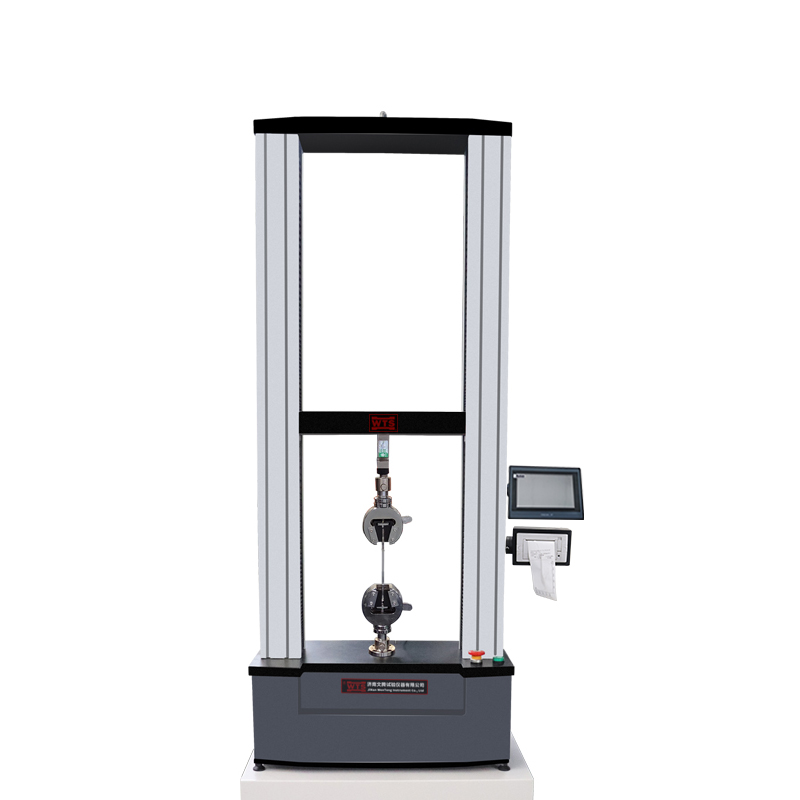In today’s fast-paced industrial environment, precision testing equipment plays a vital role in ensuring product quality, safety, and innovation. Among all testing devices, the best universal testing machine stands out as an essential tool for laboratories, manufacturers, and research centers worldwide.
This article provides an in-depth guide to the best universal testing machine in 2025, covering its definition, applications, features, benefits, and trends. It also serves as a comprehensive resource for buyers searching for reliable, efficient, and future-ready solutions.
What Is a Universal Testing Machine?
A universal testing machine (UTM) is a device designed to evaluate the mechanical properties of materials. By applying controlled loads and monitoring responses, it helps determine tensile strength, compression strength, flexural behavior, shear resistance, tear strength, peel adhesion, and more.
The best universal testing machine combines high-precision hardware with intelligent software, ensuring compliance with international standards such as ASTM, ISO, EN, JIS, and GB.
Why the Best Universal Testing Machine Matters in 2025
Safety and Compliance
Every industry relies on certified materials. From aircraft structures to medical implants, the best universal testing machine ensures compliance with global safety standards.
Innovation in Materials
New materials like composites, nanomaterials, biodegradable plastics, and lightweight alloys demand advanced testing. Modern UTMs empower R&D teams to explore new frontiers.
Cost and Efficiency
Reliable testing prevents costly product recalls, warranty claims, and safety failures. By adopting the best universal testing machine, companies save time and resources while enhancing credibility.

Core Features of the Best Universal Testing Machine
The best universal testing machine in 2025 is defined by a set of advanced features:
- High-accuracy load cells delivering precise results across wide ranges.
- Dual-column or single-column frames for different load capacities.
- Servo-electric or servo-hydraulic drives for controlled motion.
- Grips and fixtures adaptable to different sample shapes and materials.
- Smart software systems for automated test setup, data analysis, and reporting.
- Safety mechanisms like overload protection and emergency stop.
- Connectivity with Industry 4.0 systems for remote monitoring and predictive analytics.
Applications of the Best Universal Testing Machine
Automotive and Aerospace
From engine components to lightweight composites, UTMs ensure safety and durability.
Construction and Civil Engineering
Concrete, steel, wood, and geosynthetics undergo compression, tensile, and bending tests for reliability.
Plastics and Polymers
Stress-strain curves, creep tests, and modulus evaluations are essential for packaging and industrial plastics.
Textiles and Leather
Seam strength, tear resistance, and elongation tests determine product quality.
Electronics and Packaging
Adhesion, peel strength, and puncture tests guarantee product protection and performance.
Medical Devices and Pharmaceuticals
Biocompatible materials and packaging films are tested for compliance and patient safety.
Common Tests Performed with the Best Universal Testing Machine
Tensile Test – Measuring elongation, yield strength, and tensile strength.
Compression Test – Evaluating compressive behavior of construction materials and polymers.
Flexural Test – Studying bending resistance in plastics, composites, and wood.
Shear Test – Assessing bonding strength of adhesives and laminates.
Peel and Tear Test – Ensuring durability of textiles, films, and packaging.
Creep Test – Analyzing long-term deformation under constant load.
Fracture Toughness Test – Understanding crack initiation and propagation.
Benefits of Investing in the Best Universal Testing Machine
Accurate and Repeatable Results: Reliable data ensures product integrity.
Multi-purpose Use: One machine performs multiple types of tests.
Faster Testing Cycles: Automation improves efficiency.
Regulatory Compliance: Meets ASTM, ISO, and EN standards.
Cost Efficiency: Prevents failures and reduces quality control expenses.
Long Lifespan: High durability provides years of service.

Buyer’s Guide: How to Choose the Best Universal Testing Machine
When selecting the best universal testing machine, consider the following:
Load Capacity
Low-capacity (0.1 kN to 10 kN) for films, fibers, and foams.
Medium-capacity (10 kN to 100 kN) for plastics and composites.
High-capacity (100 kN and above) for metals, alloys, and construction materials.
Frame Design
Single-column machines for lightweight applications.
Dual-column floor-standing systems for heavy-duty testing.
Drive Technology
Electromechanical drives for precision at low and medium loads.
Hydraulic drives for high-force applications.
Software Capabilities
Pre-configured templates.
Customizable test parameters.
Cloud integration for data management.
Service and Calibration
Regular calibration ensures long-term accuracy.
Technical support and spare parts availability are crucial.
Industry 4.0 and the Best Universal Testing Machine
Modern UTMs integrate seamlessly into smart factories. With IoT sensors, AI-driven analytics, and cloud connectivity, the best universal testing machines provide real-time insights, predictive maintenance, and global data accessibility. This makes them strategic assets in digital manufacturing.
Emerging Trends for the Best Universal Testing Machine in 2025
AI-Powered Analysis – Intelligent algorithms interpret results automatically.
Sustainable Designs – Energy-efficient systems reduce environmental impact.
Compact and Modular Models – Suitable for labs with limited space.
Remote Monitoring – Operators can run tests from different locations.
Customization – Tailored solutions for industries with unique needs.
Global Market Outlook for the Best Universal Testing Machine
The global demand for UTMs is growing due to:
Expanding aerospace and automotive industries.
Rising construction projects in emerging markets.
Increasing demand for medical and pharmaceutical testing.
Rapid growth in polymers, composites, and packaging sectors.
Asia-Pacific is projected to dominate growth, while North America and Europe remain innovation leaders.

Comparison: Electromechanical vs Hydraulic Universal Testing Machines
Electromechanical UTMs
High precision at low to medium loads.
Energy-efficient and quieter operation.
Best suited for plastics, textiles, and composites.
Hydraulic UTMs
Handle very high loads.
Rugged design for metals and concrete.
Best choice for heavy-duty industrial applications.
Frequently Asked Questions (FAQ)
1. What is the best universal testing machine for plastics?
An electromechanical UTM with 10–50 kN capacity is generally ideal.
2. Can one machine perform both tensile and compression tests?
Yes, the best universal testing machines are designed for multiple test types.
3. How often should a universal testing machine be calibrated?
At least once per year, or as required by industry standards.
4. What software features should I look for?
Look for pre-programmed standards, customizable test settings, automated analysis, and cloud connectivity.
5. What industries use the best universal testing machine?
Aerospace, automotive, construction, packaging, textiles, plastics, electronics, and medical device industries.
Why the Best Universal Testing Machine Is a Strategic Investment
Investing in the best universal testing machine goes beyond compliance. It ensures safety, accelerates innovation, and improves efficiency. In industries where failure is not an option, having reliable testing equipment builds trust, protects brand reputation, and drives long-term success.
Conclusion
The best universal testing machine in 2025 is more than a testing device—it is the backbone of modern material science and industrial innovation. With its precision, versatility, and integration into smart manufacturing, it remains a crucial tool for organizations worldwide.
By carefully evaluating load capacity, drive technology, software features, and support services, buyers can select the best universal testing machine tailored to their needs. In a world where quality and safety define success, the right UTM is a true competitive advantage.







